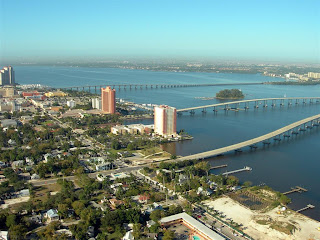I was born in Newport, RI and then moved to South Kingstown, RI. The majority of my family was raised in Rhode Island as well. I went to South Kingstown High School, but so did my mom, dad, brother, and grandma. By the time I got there, everyone knew who I was.
My grandpa was police captain at South County Police Department. I used to think it was awesome when he would pick me up from school in detective car.
My favorite part about Rhode Island though, is the water. When it is summer time up there, it is amazing. Everything is blooming and thriving and has a clean fresh scent. Before I moved to the woods, I used to live next to my grandparents in East Matunuck Beach. We were a mile walking distance from the beach, so naturally I spent all my time there. From her yard, you could see through her field and down out to Salt Lake Pond. There, the pond would open to the Bay leading out to he ocean. I used to go boating and tubing on that pond all the time with my uncle.
My grandma has a green thumb to say the least. She has numerous garden filled with tulips and other flowers. She also has two vegetable gardens. She composts a lot, and uses that as soil for her garden.
My favorite thing in her yard was always the Cherry Blossom Tree.
Down the road toward the beach, there is a marsh called Salt Marsh. Whenever I would get "bored", I would grab a ten gallon bucket and walk down. There is would dig my toes in the sand until I would feel and oyster. Once I got it I would place in my bucket till it was full. Oystering is fun because I was catching my food, while dodging the crabs who were angry that I stepped in their nest.
East Matunuck has always been really pretty. One end has all the beach houses that have been there since before my mom, and the other end is vacant for tourists with nothing but a pavilion. I pretty much lived at the beach growing up, it was my comfort place for sure.
A big tourist spot in Rhode Island, besides Newport, is Block Island. Block Island is 12 miles off the coast, and on a clear day you can see the island from East Matunuck and Matunuck Beach.
Fun Fact: the largest great white shark caught ever recorded was caught off the coast of RI, very close to Block Island.
Fun Fact: The Nature Conservancy has designated Block Island "one of the 12 last greatest places in the Western Hemisphere".
The island is very cool in the summer though. It is thriving with all different people. Some people live on the island all year so there is a school out there. It is also a great place for school field trips because there is a lot of history there. Its a cute weekend getaway spot with all the small family owned motels and you can rent bikes and ride them everywhere. My favorite part of the Island is the Bluffs.
There is a lot Rhode Island has to offer. When I moved to Florida, people thought I was exaggerating on how awesome it is up there. Maybe some of these pictures will be insightful, but it is a great place with lots of places to explore.
"Formed by glaciers nearly 10,000 years ago, Block Island features a diverse array of habitats.
Maritime shrubland, beaches and open morainal grasslands support more than 40 state and federal rare or endangered species, including the globally endangered American burying beetle.
Birds stop here while migrating in the spring and fall along the Atlantic Flyway. In addition to the plants and animals, the human community is dedicated to conserving open space to preserve their natural and cultural heritage."
Popular Areas of Interest:
- Clay Head Preserve
- Fresh Swamp Preserve
- Hodge Family Wildlife Preserve
- Nathan Mott Park & Turnip Farm
- Rodman's Hollow




























